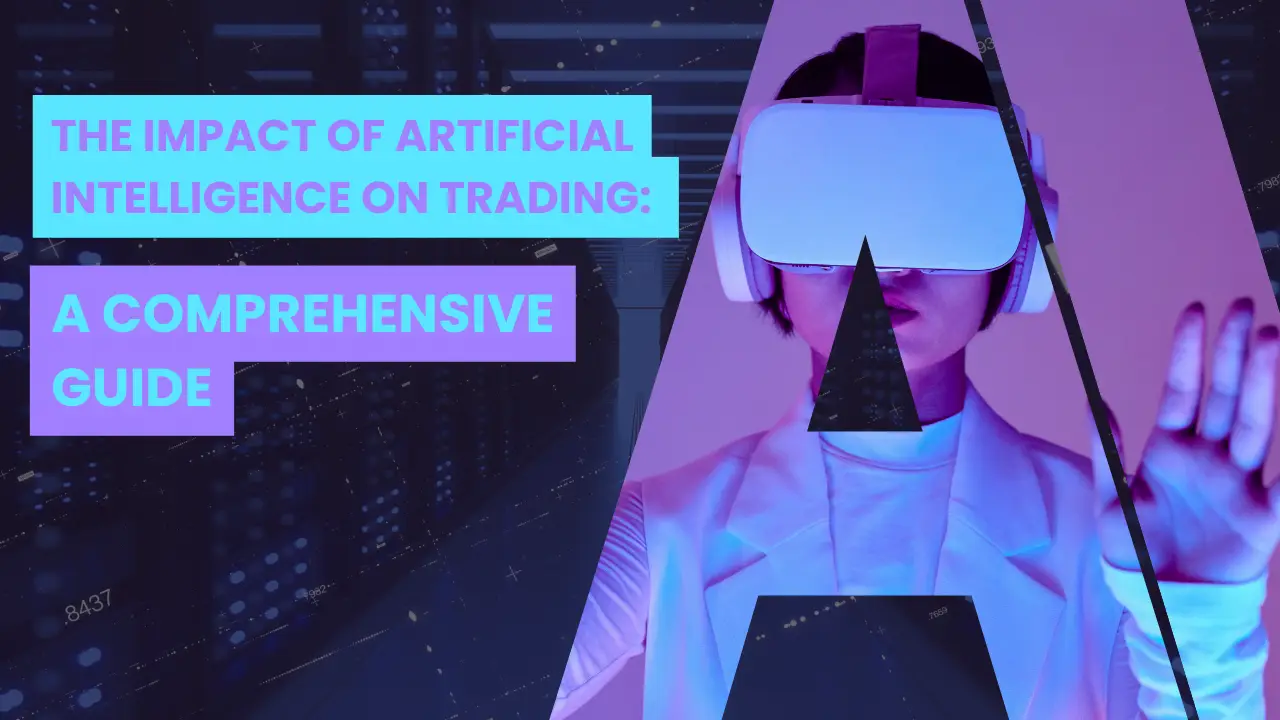The Impact of Artificial Intelligence on Trading: A Comprehensive Guide
Introduction to Artificial Intelligence in Trading
Artificial Intelligence (AI) has revolutionized various industries, and the financial sector is no exception. In recent years, AI has emerged as a powerful tool in trading, enabling investors to make more informed decisions, automate processes, and capitalize on market opportunities.
AI-Powered Trading Algorithms
Understanding the core of AI in trading begins with comprehending AI-powered trading algorithms. These algorithms leverage advanced mathematical models and data analysis techniques to interpret market signals, identify patterns, and execute trades with precision.
Automated Trading Systems
AI has enabled the development of automated trading systems that execute trades automatically based on predefined criteria. These systems eliminate human emotions and biases from the trading process, leading to faster execution and improved efficiency.
Machine Learning in Trading
Machine learning plays a pivotal role in trading by enabling computers to learn from historical data, adapt to changing market conditions, and make predictions. Applications of machine learning in trading include predictive analytics, sentiment analysis, and risk assessment.
Quantitative Analysis and AI
AI enhances quantitative analysis in trading by providing sophisticated tools for data processing, statistical modeling, and risk management. Quantitative analysts leverage AI algorithms to identify profitable trading opportunities and optimize portfolio performance.
High-Frequency Trading (HFT) and AI
High-Frequency Trading (HFT) has been significantly influenced by AI, with algorithms executing trades at lightning speed based on complex mathematical models. While HFT can provide liquidity and narrow spreads, it also raises concerns about market manipulation and systemic risk.
AI and Market Prediction
AI is increasingly used for market prediction, leveraging vast amounts of data to forecast price movements and identify trading opportunities. While AI-driven predictions can be highly accurate, they are also subject to uncertainty and volatility in financial markets.
Algorithmic Trading Strategies
AI-driven algorithmic trading strategies encompass a wide range of approaches, including trend following, mean reversion, and arbitrage. These strategies are designed to capitalize on market inefficiencies and generate consistent returns over time.
Regulatory Considerations
The proliferation of AI in trading has prompted regulatory scrutiny, with authorities seeking to ensure fair and orderly markets. Regulatory considerations include transparency requirements, algorithmic trading controls, and risk management standards.
Risk Management in AI Trading
Despite the benefits of AI in trading, it also introduces new risks, such as algorithmic errors, data biases, and model overfitting. Effective risk management strategies are essential to mitigate these risks and safeguard investor interests.
The Future of AI in Trading
The future of AI in trading holds immense potential, with ongoing advancements in machine learning, natural language processing, and quantum computing. These innovations are poised to reshape financial markets and drive new opportunities for investors.
Case Studies
Real-world examples showcase the practical applications of AI in trading, ranging from hedge funds using machine learning to identify market trends to investment banks deploying AI algorithms for risk management.
Pros and Cons of AI in Trading
While AI offers numerous benefits in trading, including increased efficiency, reduced costs, and enhanced decision-making, it also presents challenges such as algorithmic biases, regulatory complexities, and technological dependencies.
Conclusion
In conclusion, the impact of artificial intelligence on trading is profound and multifaceted. From AI-powered algorithms to automated trading systems and machine learning models, AI has transformed the way financial markets operate. While AI holds great promise for improving trading outcomes, it also necessitates careful consideration of risks and regulatory implications.
FAQs
1. How does AI improve trading outcomes?
AI improves trading outcomes by leveraging advanced algorithms to analyze vast amounts of data, identify patterns, and execute trades with precision.
2. What are the regulatory challenges associated with AI in trading?
Regulatory challenges include ensuring transparency, preventing market manipulation, and addressing ethical concerns related to algorithmic trading.
3. How can investors mitigate the risks of AI in trading?
Investors can mitigate risks by implementing robust risk management strategies, conducting thorough due diligence on AI systems, and staying informed about regulatory developments.
4. What are some emerging trends in AI trading?
Emerging trends include the integration of AI with other technologies such as blockchain and the rise of decentralized finance (DeFi) platforms.
5. Is AI likely to replace human traders entirely?
While AI can automate many aspects of trading, human expertise remains essential for decision-making, risk management, and adapting to unforeseen market conditions.


